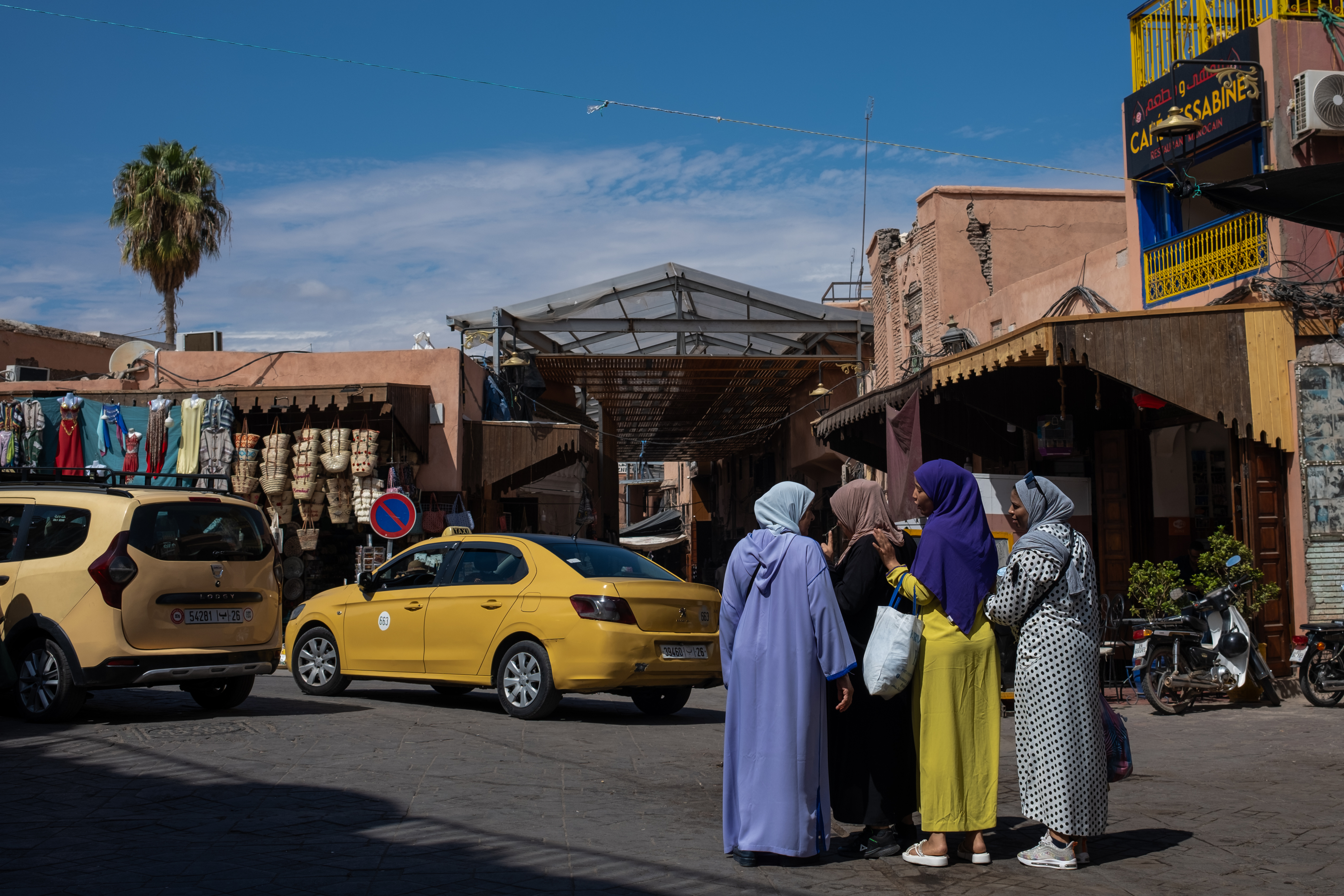Despite Morocco’s many legal advances in women’s rights, the lack of effective implementation and the existence of legislative loopholes undermines the country’s reputation as open, tolerant, and progressive. A sharp social divide exists: While feminist groups work to push legislative standards toward equality, conservatives in non-governmental organizations, judicial institutions, and broader Moroccan society continue to fight to limit the gender parity legislation and its effects. This situation obscures the critical contribution Moroccan women make to the local economy; enables even more pronounced levels of poverty and vulnerability, as well as prevents greater exposure of marginality and violence toward women.
The Middle East Institute (MEI) and the North African Policy Initiative (NAPI) are proud to present the fourth installment of the youth roundtable series focused on Morocco, convening young experts from Morocco to discuss the status of women’s rights in their country. They will discuss women’s status in the Moroccan governance system and the consequences of inequality and violence on women and girls as well as offer pathways forward to political, economic, and social empowerment engaging all sectors of society.
Speakers
Hafsa El Mesbahi
Co-founder, Deleuze Policy Institute
Mohammed Bouhakkaoui
Psychologist specializing in gender-based violence
Oumaima Mhijir
General Director, Association L'heure Joyeuse
Intissar Fakir, moderator
Senior Fellow; Director, Program on North Africa & the Sahel, Middle East Institute
Detailed Speaker Biographies
Mohammed Bouhakkaoui is an experienced activist and professional dedicated to addressing gender-based violence. As a psychologist, he has worked tirelessly with women who have experienced domestic violence and their children in Fez, Morocco. His passion lies in promoting gender equality and supporting those affected by violence, making a positive impact in the community. He also served as the youth ambassador of gender equality in UNFPA
Hafsa El Mesbahi is a Moroccan civil society activist, driven by a deep passion for fostering positive change in Morocco. She's the co-founder of Deleuze Policy Institute and currently holds the position of Project Coordinator with Urgent African Fund.
Oumaima Mhijir is a young Moroccan woman from Souk Sebt Ouled Nemma, Beni Mellal, she has been working in the field of social development for 9 years. Originally trained as an engineer in networks and telecommunications, she entered the world of social entrepreneurship by implementing socio-economic development projects in Morocco and abroad (India, Tanzania), with expertise in the co-construction of social innovation solutions, financial planning, multi-year strategic development, communication and advocacy. Oumaima initially completed an MBA in HRM at ASM Paris, then furthered my studies at the Center for Philanthropic Studies at the University of Balles in Switzerland and received my Advanced Studies Diploma in International Social Entrepreneurship from UNESCO. She recently completed an Executive Leadership Fellowship at Harvard Kennedy School in Boston, Massachusetts, USA, and she believes in the power of global thinking and local design through Moroccan-Moroccan solutions.
Intissar Fakir is a senior fellow and director of MEI’s North Africa and Sahel Program. She is an expert on North Africa, the Sahel, and key regional thematic issues, including governance, social change, migration, and security. She has written extensively on North Africa’s evolving politics including Islamist electoral politics in post-2011 Morocco and Tunisia, the Western Sahara issue, foreign policy priorities in Morocco and the broader region, and the impact of COVID-19 on regional political stability. Her research has also included political transitions, mobilization trends, energy, and social change in Morocco, Mauritania, Algeria, and Tunisia. Prior to joining MEI, Intissar was a fellow at the Carnegie Endowment for International Peace where she was also the editor-in-chief of the bilanguage (English and Arabic) Middle East platform Sada. She has also implemented programs at various NGOs in support of political, economic and social reform in North Africa and the Middle East. She has consulted and advised governments and corporate entities in the U.S. and Europe on Maghreb developments.
In partnership with

Photo by Alexi Rosenfeld/Getty Images












